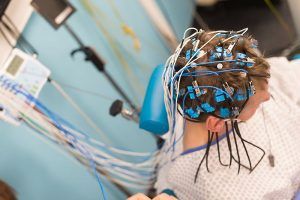Alison Abbott in Nature:
 Neuroscientists have for the first time discovered differences between the ‘software’ of humans and monkey brains, using a technique that tracks single neurons. They found that human brains trade off ‘robustness’ — a measure of how synchronized neuron signals are — for greater efficiency in information processing. The researchers hypothesize that the results might help to explain humans’ unique intelligence, as well as their susceptibility to psychiatric disorders. The findings were published in Cell1 on 17 January. Scientists say that this type of unusual study could help them to better translate research in animal models of psychiatric diseases into the clinic. The research exploited a rare set of data on the activity of single neurons collected deep in the brains of people with epilepsy who were undergoing neurosurgery to identify the origin of their condition. The technique is so difficult that only a handful of clinics around the world can participate in this type of research. The study also used similar, existing data from three monkeys and collected neuron information from two more.
Neuroscientists have for the first time discovered differences between the ‘software’ of humans and monkey brains, using a technique that tracks single neurons. They found that human brains trade off ‘robustness’ — a measure of how synchronized neuron signals are — for greater efficiency in information processing. The researchers hypothesize that the results might help to explain humans’ unique intelligence, as well as their susceptibility to psychiatric disorders. The findings were published in Cell1 on 17 January. Scientists say that this type of unusual study could help them to better translate research in animal models of psychiatric diseases into the clinic. The research exploited a rare set of data on the activity of single neurons collected deep in the brains of people with epilepsy who were undergoing neurosurgery to identify the origin of their condition. The technique is so difficult that only a handful of clinics around the world can participate in this type of research. The study also used similar, existing data from three monkeys and collected neuron information from two more.
Over the decades, neuroscientists have discovered many subtle and significant differences in the anatomy — the hardware — of the brains of humans and other primates. But the latest study looked instead at differences in brain signals. “There is a clear difference in behaviour and psychology between humans and non-human primates,” says Mark Harnett from the Massachusetts Institute of Technology in Cambridge who studies how the biophysics of neurons affect neural computation. “Now we see this difference in the brain’s biology — it’s a tremendously valuable study.”
More here.
